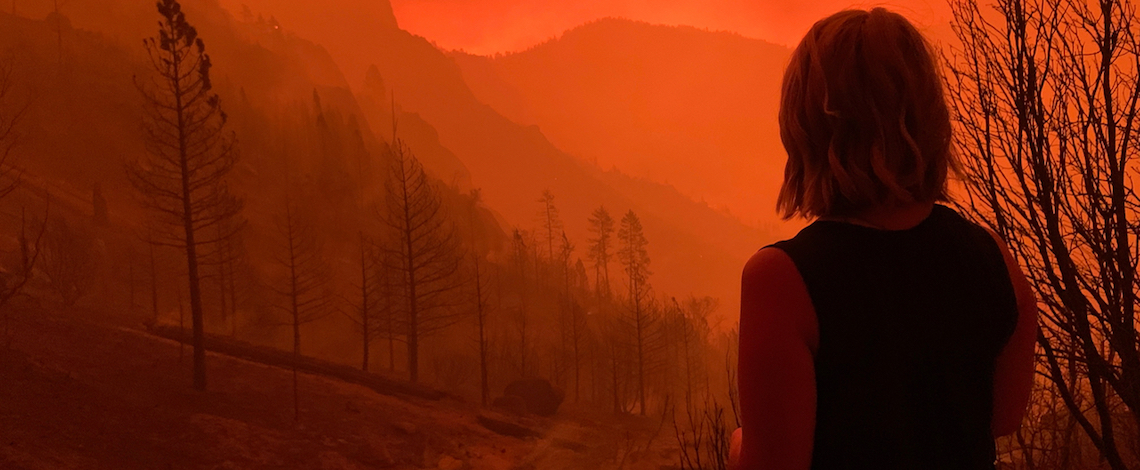
A crew from FOX26 in Fresno set out to document the progression of 2020's Creek Fire Photo contributed by KMPH
Written by
A new scientific study finds that California’s 2020 wildfire season negated years of greenhouse gas emission reductions from other sectors.
Published in the journal “Environmental Pollution,” the study by UCLA and University of Chicago researchers found that the 2020 wildfires — including the Creek Fire that burned nearly 380,000 acres near Shaver Lake — resulted in more than double the amount of greenhouse gas emissions slashed by the state from 2003 to 2019.
According to the study, wildfire emissions in 2020 equated to 127 million metric tons of carbon dioxide emissions — second only to transportation (166 million metric tons) but well above industry (88 million metric tons) and power generation (59 million metric tons).
The study reports that global monetized damages caused by 2020 wildfire emissions amounted to $7.1 billion.
A key take away from the study is that forest management policies focusing on fire suppression rather than preventative measures including mechanical clearing and prescribed burning increase the risk of large, destructive wildfires.
The study states there is a need to develop accessible, quantitative tools for policymakers and the public to understand how wildfire risk can be reduced through better management.
Seizing on the study, California Assembly Republican Leader James Gallagher (Yuba City) criticized Democrats for the state’s regulatory policy on carbon emissions.
“This study confirms what Republicans have been saying for years. In just one fire season, our progress on cutting emissions was set back 18 years. Instead of prioritizing vital fire prevention work, the Democrats banned your gas powered leaf blowers, kitchen stoves, and cars. There is a smarter and more effective approach to combating climate change, and it begins with a greater emphasis on forestry management and fuels reduction,” he said.








